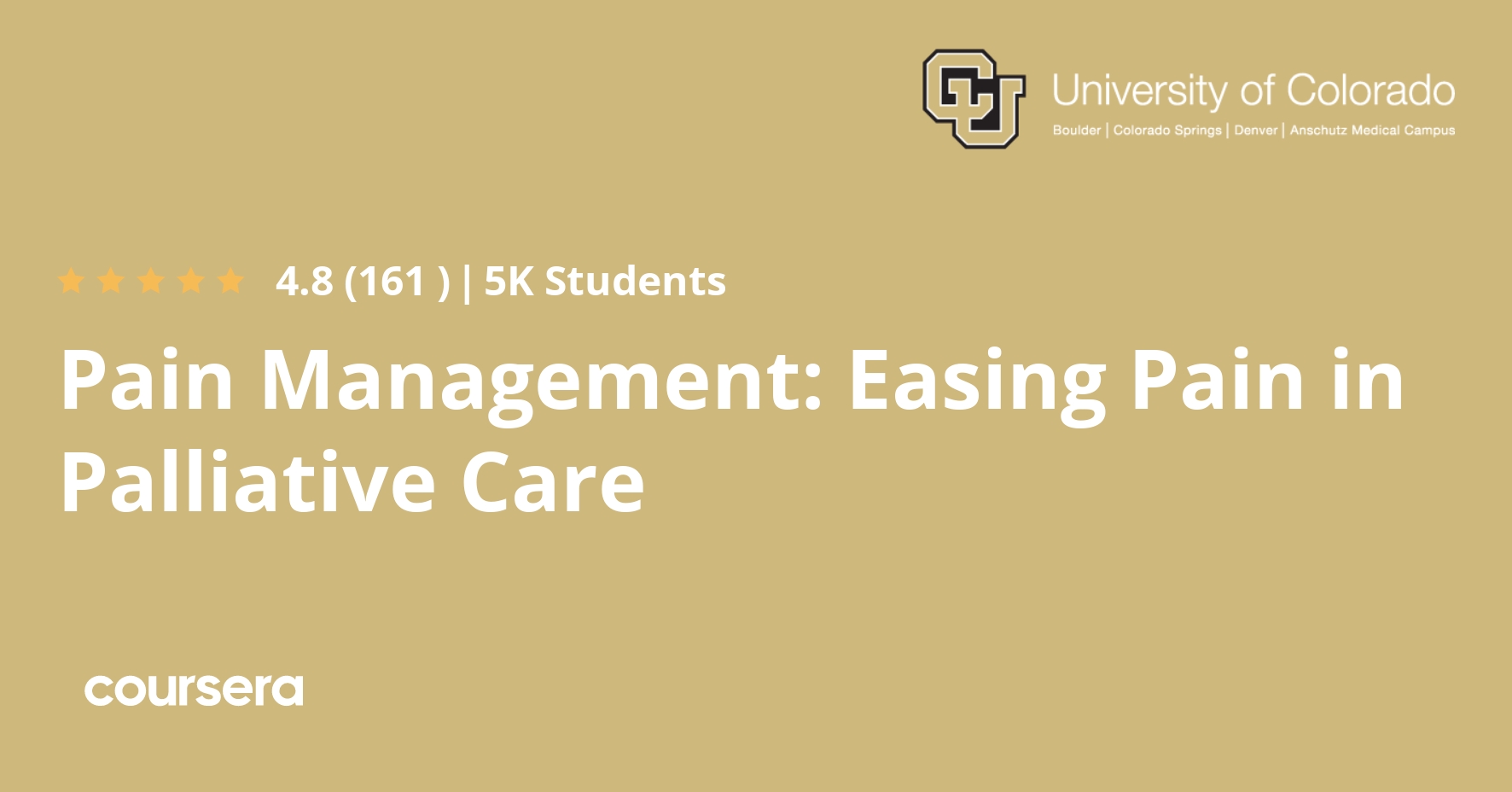Description
In this course, you will be able to develop a systems view for assessing and managing pain in the palliative care setting. By the end of the course, you will be able to: 1) Describe the pain problem in the palliative care setting; 2) Assess a person’s pain, 3) Explain the benefits of integrative therapies and pharmacologic strategies to manage pain.
What you will learn
Pain
In this module, you will review pain assessment basics. You will start with defining pain and the scope of the pain problem in the palliative care setting. You will review various pain types and causes of pain in people with serious illness. To understand how pain medications and integrative pain therapies work to decrease pain, you need to know how the body recognizes pain and makes a person hurt. Common barriers to good pain management and myths and misconceptions will be discussed. You will review how to evaluate a person’s pain and how to know if persons are having pain when they cannot tell you. Remember pain is a personal experience.
Non-Pharmacological pain treatment
In this module, you will review the many dimensions that can affect the way pain is expressed and how it responds to treatment. You will also review various integrative therapies or healing practices that focus on the relationship between the provider and whole person, including the mind, body, and spirit, to improve health, healing, and pain. You will start with defining complementary and alternative therapies and understanding the difference between the two. You will review four integrative health domains as defined by the National Center for Integrative Health which is part of the National Institutes of Health. Finally, you will evaluate the best evidence about the use of these therapies in managing pain in people with serious illness. Remember, it is important to ask patients if they use integrative health therapies. Try to understand their past experiences and attitudes toward non-drug treatments. The key is to find out what works for the person in pain with his/her unique characteristics. As caregivers we need to be open to various approaches and our patient’s wishes.
Medication Management (including over the counter and non-opioid medicines)
When people have pain their quality of life can be poor and they can experience more suffering. In this module, you will learn about non-opioid medications that can be used to treat pain and ease suffering.
Opioids, safety, and addiction
When people have pain their quality of life can be poor and they can experience more suffering. In this module, you will learn about opioid medications that can be used to treat pain and ease suffering.









